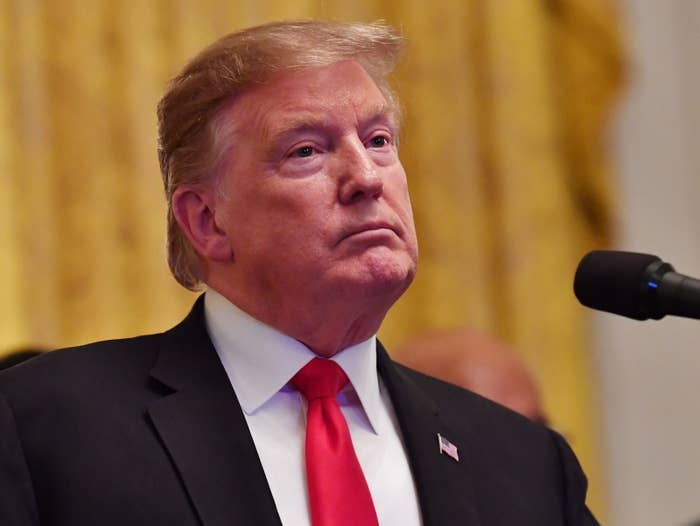
WASHINGTON — Sen. Lamar Alexander has come out against Trump’s state of emergency on the southern border, possibly becoming the crucial fourth Republican needed for Congress to formally rebuke the president.
Trump declared the state of emergency in order to divert billions of dollars toward building a border wall. If Alexander joins Republican Sens. Susan Collins, Lisa Murkowski, and Thom Tillis, there will be enough votes, including Democrats, to pass a resolution to end the state of emergency.
Alexander argued Thursday that the founders of the country rejected the concept of a king who can set taxes and spending on his own and said these powers must remain with Congress.
“Separation of powers is a crucial constitutional imperative that goes to the very heart of our freedom,” he said.
Alexander also warned that if Trump sets this precedent, future Democratic administrations will use emergency powers to advance their agenda.
“I support what the president wanted to do on border security but I do not support the way he has been advised to do it. It is unnecessary and unwise to turn a border crisis into a constitutional crisis,” said Alexander.
Despite his clear condemnations, after his speech Alexander would not confirm that he will vote for the resolution to end the state of emergency, noting that the Senate has two weeks to go on bringing this up.
“I learned a long time ago in the United States Senate, it’s not wise to announce how you’ll vote on a vote you may never have to take,” he said.
Alexander told reporters he had not spoken to anyone at the White House about his opposition, but provided a copy of his speech to the administration and to Senate Majority Leader Mitch McConnell before he spoke Thursday.
Democrats in the House passed this resolution earlier this week with the support of 13 Republicans, and the Senate must hold a vote on it within the next couple weeks.
Trump will almost certainly veto it if it is passed through Congress. White House adviser Stephen Miller signaled Trump would veto the resolution, telling Fox News earlier this month, “obviously the president is going to protect his national emergency declaration.” To override the veto requires a two-thirds majority in both the House and the Senate, which is likely out of reach.
Still, the vote will put many Republican senators in an awkward position. Several of them have objected to the president using a state of emergency to access funds not approved by Congress. But most Republicans are wary of crossing the president, and McConnell has been diligent about blocking votes that would do so. For months he has blocked a vote on a bipartisan bill to protect special counsel Robert Mueller.
But because this is a privileged resolution already passed by the House, McConnell, who supports the national emergency, cannot stop a vote from occurring.
Sen. Chuck Grassley acknowledged that Republicans aren’t happy about having to vote on the disapproval resolution. Both he and Sen. Shelley Moore Capito told reporters that Republicans had tried to come up with alternatives to the vote, but had run into procedural issues. “You’re caught between a need for border security and agreeing with what the president wants to do, but not how he wants to do it,” Grassley said.
Trump’s state of emergency declaration was immediately challenged in the courts. Republicans have warned the legal battle could drag past the end of Trump’s current term in office.


